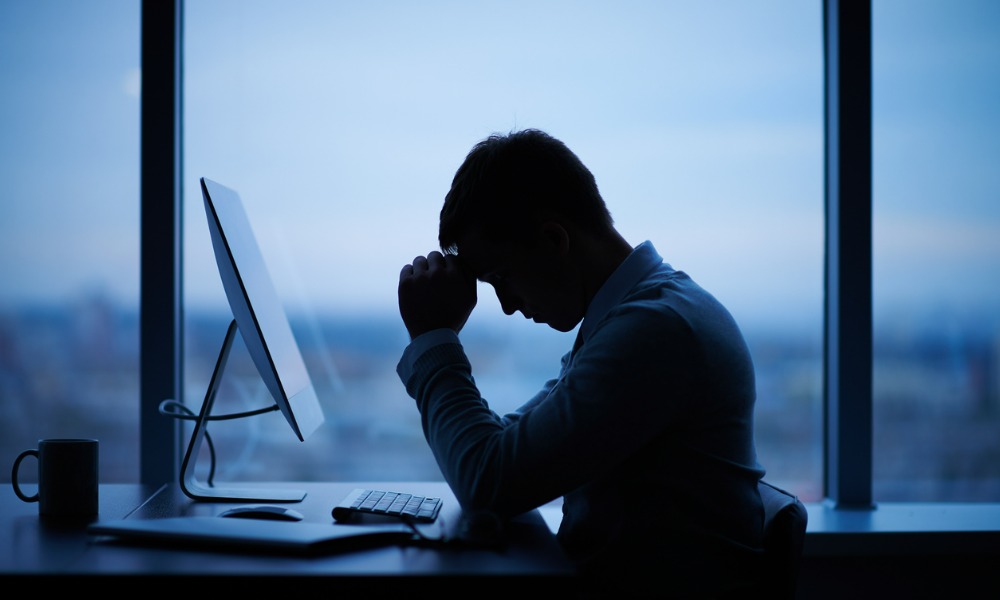
New data sheds light on the impact burnout and stress is having on your teams

Work is taking its toll on employees – even when their day is done. Nearly half (49%) of Canadians currently employed full time say they feel fatigued at the end of a regular workday, according to data from Research Co.
This stress and fatigue offsets a lot of physical ailments, including:
Previous research from Cisco found that 81% of knowledge professionals and executives experience physical ailments at the end of each day after long video meetings.
Work is also instigating a lot of mental stress for workers, according to the report. Just under two-thirds (64%) describe their position as “very stressful” or “moderately stressful”, and 33% have felt depressed because of work.
Many have had to make sacrifices just to meet work demands in the past year:
“Female full time employees in Canada are more likely to report having to do more at their workplace without the benefit of a larger paycheque (44%) than their male counterparts (27%),” says Mario Canseco, President of Research Co. “Women are also more likely to feel dejected by work (41%) than men (25%).”
And, on top of all this, workers simply don’t feel appreciated enough.
Just over two thirds of full-time employees in Canada (68%) think the company they work for appreciates the effort they put into their job - but just three-in-five (61%) think their employer cares for their health and wellbeing. While 55% of full-time employees in Canada believe the company they work for pays them what they deserve, 41% disagree.
Women (49%), full-time employees aged 35-to-54 (45%), Ontarians (also 45%) and those in the middle-income bracket (46%) are more likely to believe that they are not getting paid what they deserve.
Nearly a quarter (24%) of Canadian workers said they were less satisfied with their jobs since the COVID-19 pandemic, according to a previous study.
There are several measures employers can implement to address growing workplace fatigue and stress, according to both the Canadian Centre for Occupational Health and Safety (CCOHS) and the U.S. Department of Labor’s Occupational Safety and Health Administration (OSHA). These include:
On average, studies say people need at least seven to nine hours of sleep every day, according to CCOHS. However, studies have also reported that most night shift workers get about five to seven hours less sleep per week than the day shift.
“Humans follow an ‘internal’ or ‘biological clock’ cycle of sleep, wakefulness, and alertness” says CCOHS. “Although these circadian rhythms are influenced by external clues such as the sun setting and rising, it is the brain that sets your pattern. Most cycles are 23-25 hours long and there are natural dips or periods when you feel tired or less alert - even for those who are well-rested.”